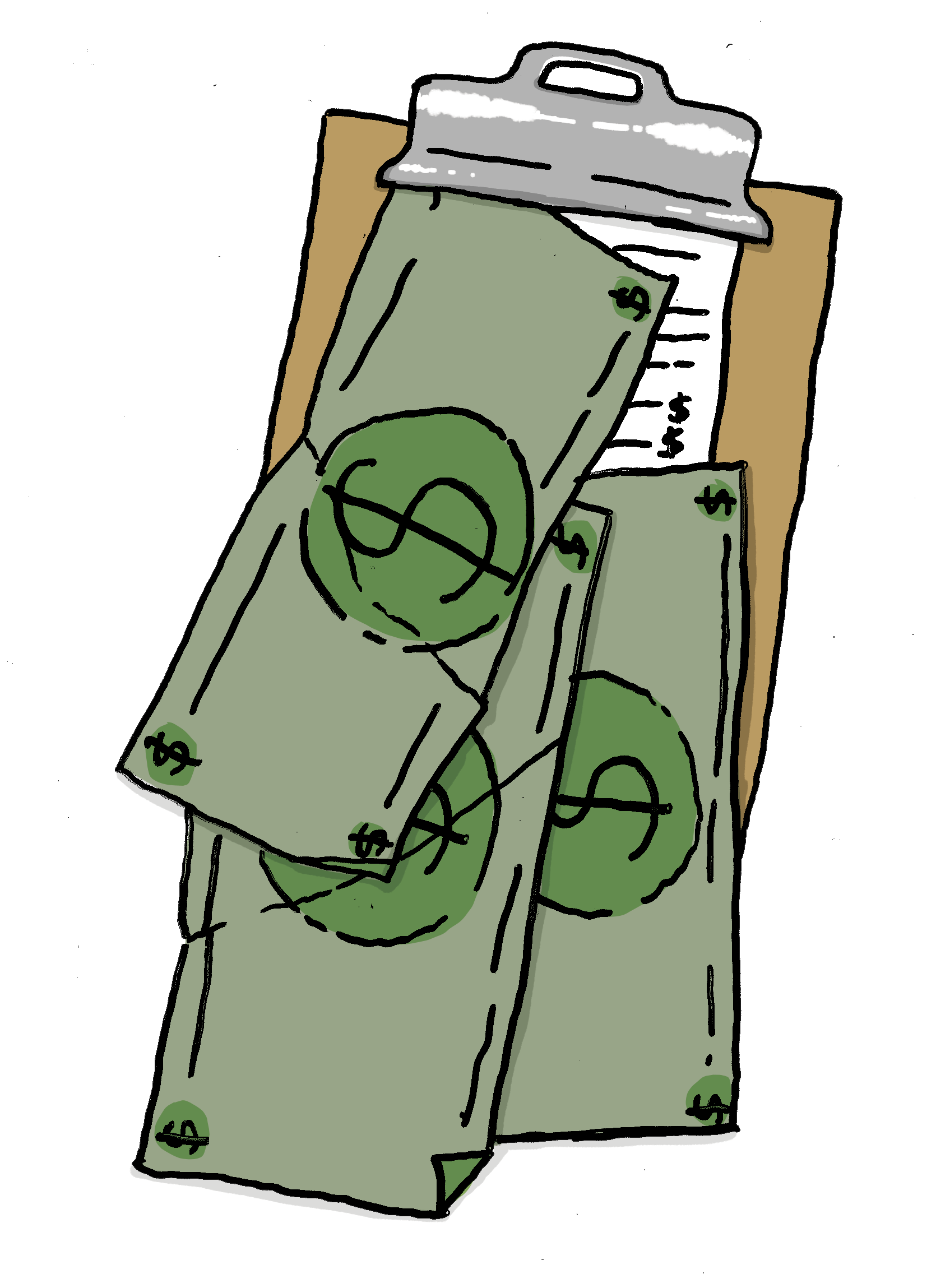If you’ve ever had the luxury of eating out at a restaurant or having your bags carried for you from the lobby of a hotel up to your room, you’re probably already familiar with the mistress of the service world—tipping.
It’s a conversation consumers and service providers have been having for years. To tip or not to tip? The answer might be more obvious than we think. The act of directly paying the hands that have served you is meant to be a gesture of comradery. When you tip, you’re not just giving someone a little extra cash. You’re showing your appreciation and gratitude.
The next time you find yourself about to exit a restaurant without leaving a few dollars on the table, consider these five reasons on why you should mull over leaving that extra 15 percent after all.
1. Food service workers are often paid less than minimum wage.
According to the United States Department of Labor, minimum wages for tipped employees fluctuate across the map. In some states such as Wyoming and New Jersey, employers are only required to pay their servers the state minimum cash wage. Under the Fair Labor Standards Act, this is as little as $2.13 an hour. If you’re lucky enough to live in a state that mandates for all employers to pay their workers above the state minimum cash wage, you could be making a whopping $9.35 like Hawaii or a humble $2.23 in Delaware. Jurisdictions such as California, Washington and Oregon are fortunate enough to be paid the state minimum wage of $12.00 per hour.
2. Some families live exclusively off of their tips.
In some cases, even receiving the minimum wage on a paycheck is out of the question. If your wages get garnished from the government for an inexplicable amount of reasons (i.e. child support, student loans or unpaid taxes) then chances are you will not have enough to pay the bills, let alone put food on the table. In these instances, many people find themselves seeking service jobs in order to make up the difference with tips.
3. More work goes into service jobs than you’d expect.
It’s not just picking up a plate of food from one location and setting it in another. For food service jobs, being a server means bussing and cleaning tables. It looks like running back and forth for refills. It’s sweeping, mopping and taking out the trash 40 hours a week and often with little recognition.
4. No one has ever complained about someone being too generous.
Apart from it just being a kind thing to do, tipping is essentially lending a helping hand to your fellow working class members. The feeling of being generous should be a good thing. Of course, you are not required to tip (unless eating at restaurants that includes gratuity), but the gratitude your server will feel toward your contribution will live on past your meal. It will be reflected in the bills they pay to keep a roof over their heads. It will taste like the dinner they set at the table that night.
5. Do unto others as you would have them do unto you.
Sometimes, it all comes down to putting yourself in someone else’s shoes. Imagine you’ve been working 40 hours a week in a diner that’s busier than traffic in L.A. You bus tables, sit patrons down at that table only to have to bus it again. You’re on your feet for eight hours at a time. You’ve been whistled over, snapped at and degraded three times in the first hour of your double shift. You collect your tips at the end of the day, only to find that you’ve made barely enough to buy yourself a coffee for tomorrow’s shift. You put hope in your paycheck coming through on Friday to cover this month’s rent, but then you remember that you live in Wyoming and one 40 hour week barely gets you $70 after taxes.
You’d wish someone had tipped you too.
So the next time you’re about to skimp out on giving that extra 15–20 percent of your bill, take some time to remember not everyone has the luxury of sitting down at a restaurant for a meal. If you ever find yourself lost in this ancient debate again, here’s a helpful piece of advice to keep in your back pocket: If you can’t afford to tip, you can’t afford to eat out.







So if a family home has two parents who work minimum wage jobs that are not in the food industry still have their wages depleted by taxes, do I tip them? No, unfortunately, of course not. Tipping should be an optional thing to do based on the quality of service. Other jobs require long hours and little recognition (think of the people who clean our campus buildings) yet there doesn’t exist the expectation to tip. Either minimum wage be mandated to apply to service workers federally, or we start tipping the people sweeping the streets.
Another idea, tipping reinstates a superficial culture which oftentimes ostracizes people who can’t function within that system (people with non-visible disabilities). It also taints and razes authenticity. Treat me well because you’re a good human, not because you want my money.
Also, maybe some revision could be applied to point nr. 2 to honor families living off their wages MINUS tips.
*Much of this comment is based on the personal bias of a student who’s expected to tip even though the person working cut off their sentences and gave them a large smile at the end. The tipping smile.
If I tip, am I not just “perpetuating” institutional injustice which allows employers to not pay their wait staff a minimum wage? Seems like it would be more equitable to advocate for policy that demands all people be paid a fair wage, rather than shifting this responsibility to people who struggle to pay high costs of Portland rent, student loans, cost of living, and still want to be able to go out and get a beer without being expected to leave a 15% tip for opening a bottle. Then if you don’t tip, you’re told “well maybe you shouldn’t be eating out.” Okay, so because I can’t afford to support your boss’s unfair pay practices, I’m not worthy of being able to enjoy my evening on a budget? I’m now relegated to a state of unworthiness?
I’d like to challenge a few of your points and present an alternative perspective:
You begin with a premise that tipping is the right thing to do because in many states (not all) service workers are paid below minimum wage. Tipping then is meant to fill that gap. If your premise is correct, than by tipping, am I not supporting systematic oppression against service workers? Shouldn’t we be trying to shift policy to favor equitable wages? If I choose to tip because service workers are not paid enough, then logically I am supporting their greedy bosses and perpetuating a vicious cycle.
Second, you discuss the grueling work that service workers endure. Because of this, combined with underpay, we should be tipping. So why not McDonalds workers? I don’t know anybody that tips McDonalds employees, or Subway, Walmart, Burger King, Starbucks, or Gas Station employees. Those are all equally or more trying jobs. Tipping is only expected at more “upper scale” restaurants and bars, so therein you automatically have an equity issue. Those companies probably pay minimum wage, so shouldn’t other businesses that rely on customer tips afford their employees the same benefit of a regular salary?
In my perspective, tipping has less to do with helping others and more to do with conspicuous consumption and social status. I’ve also been and am currently very low income, burdened by undergraduate debt and now taking on more in graduate school. I’ve had people tell me if I can’t afford to tip, I shouldn’t be going out. A non-tipper is berated publicly and considered selfish. So now tipping is further perpetuated by social norms, with in turn perpetuates the systematic underpayment of food service workers.
Open to responses.